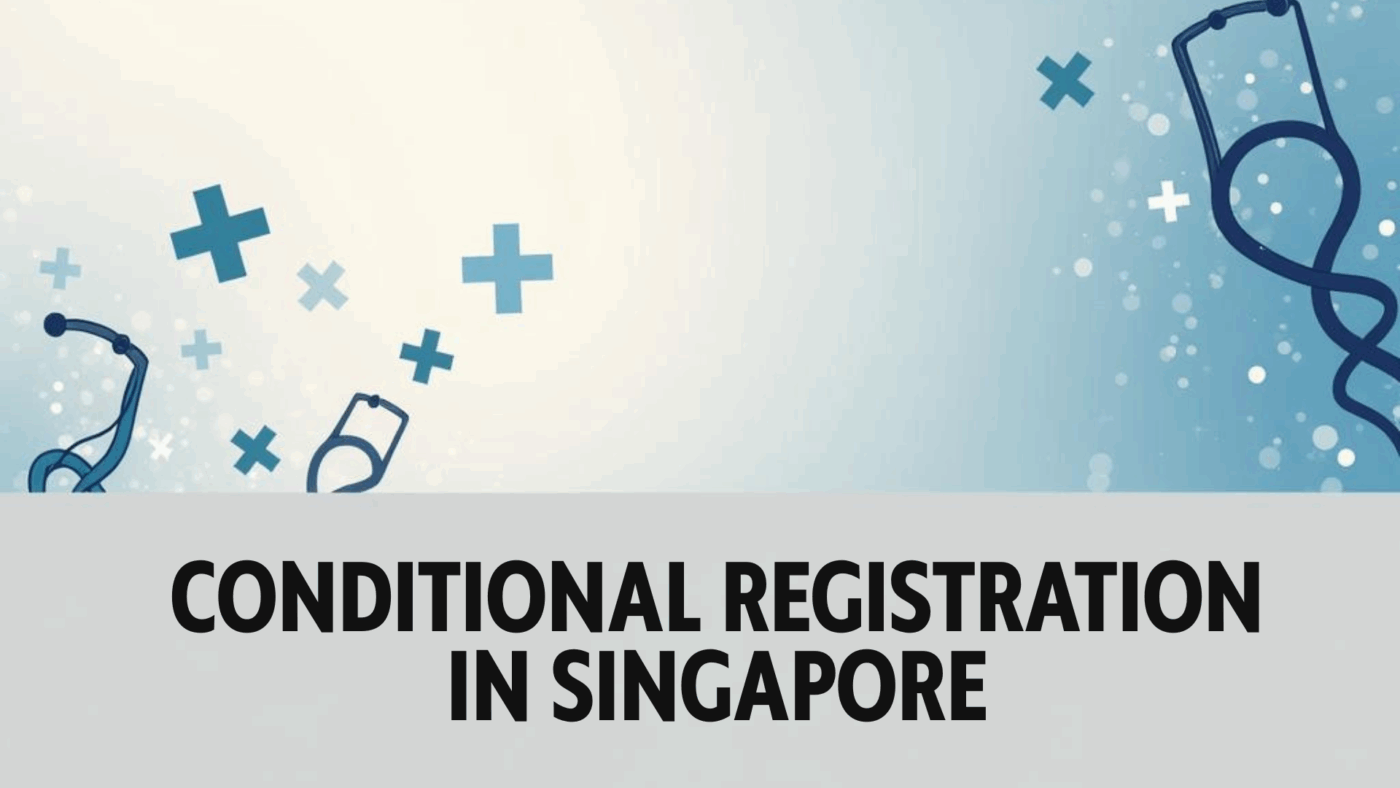Registration & Pathways
How Non-SMC Schools Can Work in Singapore: Conditional Registration Explained
If you graduate from a medical school not recognized by the Singapore Medical Council (SMC), you generally cannot work as a doctor in Singapore.
As of 2025, among Indian institutions, only selected universities are recognized by the SMC.
However, even if you did not graduate from one of these institutions, it may still be possible to work in Singapore by meeting the requirements for Conditional Registration.
This article is written by OET Bank, where we specialize in helping healthcare professionals prepare for OET and support their overseas career opportunities.
About Conditional Registration
The SMC provides a clear framework for Conditional Registration on its official website. You can find the full list of eligible qualifications here:
SMC Conditional Registration List (PDF)
This list shows specialties on the left, the full name of required qualifications in the center, and abbreviations on the right.
Across specialties, one requirement is consistent: recognition as a specialist in either the United States, the United Kingdom, Canada, or Oceania.
In other words, obtaining a specialist qualification equivalent to registration in these countries is a prerequisite for Conditional Registration in Singapore.
For example, in anesthesiology—the first specialty listed—eligibility requires registration in the US, UK, Ireland, or Oceania. If you aim to qualify in the UK, you would need to obtain the Fellowship of the Royal College of Anaesthetists (FRCA).
Specialties That Accept Examination-Based Registration
In most cases, becoming a recognized specialist in these countries requires local training, often spanning several years, followed by reviews and exams. IMGs to directly pursue registration immediately upon arrival.
That said, there are exceptions. Certain specialties allow registration based solely on examination results:
- Internal Medicine: MRCP
- Diagnostic Radiology: FRCR
- Obstetrics & Gynaecology: MRCOG
- Pathology: FRCPath
- Paediatric Medicine: MRCPCH
- Radiation Oncology: FRCR
This means that if you already hold one of these specialist qualifications, you may be able to obtain eligibility to work in Singapore simply by passing the corresponding examination.
Final Thoughts
If you did not graduate from one of the SMC-recognized schools but still want to work in Singapore, pursuing specialist registration in one of the recognized countries is the most practical route.
Among these, examination-based specialties—such as MRCP—are relatively more accessible since they do not require on-site training. This pathway has already been used successfully by doctors from countries like Myanmar to begin working in Singapore.
On the other hand, if you are open to completing overseas training, Australia is often considered one of the more accessible destinations for specialist registration.
For those not in a rush, a viable route is:
Obtain specialist qualification in Australia → Apply for Conditional Registration in Singapore.
Study with OET BANK
Stop wasting time comparing OET materials.
With OET BANK, you get:
- Premium-quality OET materials, built by professionals
- A focused, efficient study path — no unnecessary content
- A system designed to help you pass OET once — without trial and error
If you want to prepare properly and pass with confidence,
you don’t need to look anywhere else.
Pick your materials and start today — with OET BANK.




